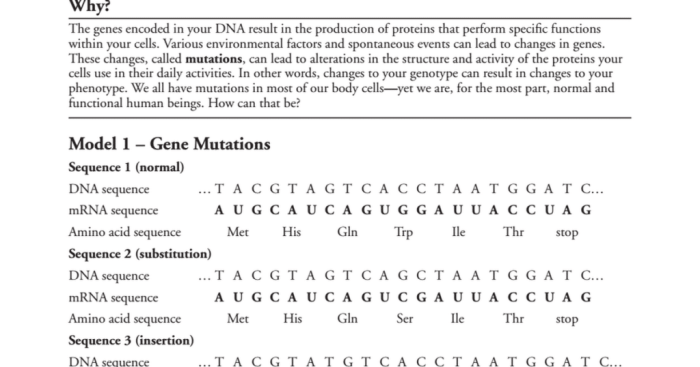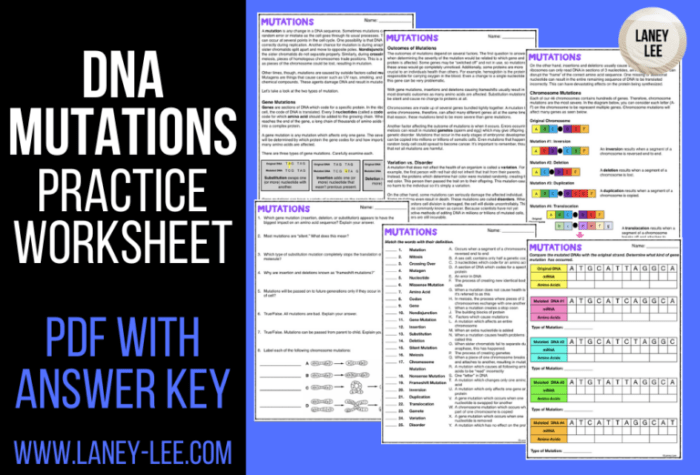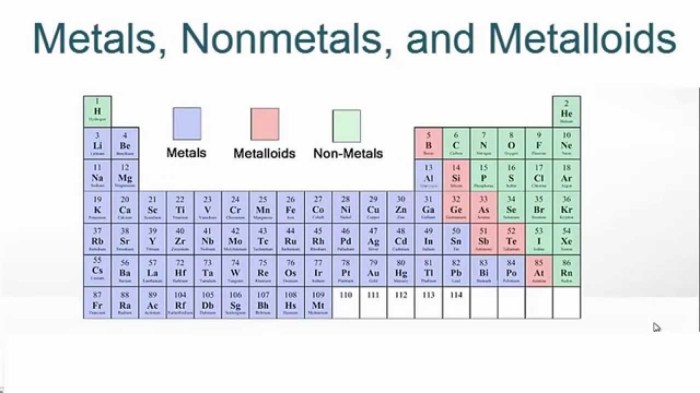The Mutations Worksheet Answer Key PDF provides a comprehensive overview of mutations, their types, causes, and consequences. This essential resource offers a structured approach to understanding the fundamental concepts of genetics and is designed to enhance student learning and assessment.
The worksheet and answer key are valuable tools for educators and students alike, providing a clear understanding of the complexities of mutations and their impact on living organisms.
Mutations

Mutations are permanent changes in the DNA sequence of an organism. These changes can range from small, single-nucleotide changes to large-scale chromosomal rearrangements. Mutations can be caused by a variety of factors, including environmental toxins, radiation, and errors during DNA replication.There
are three main types of mutations:
- Point mutationsare changes in a single nucleotide. These mutations can be either substitutions, insertions, or deletions.
- Insertions and deletionsare mutations that involve the addition or removal of one or more nucleotides from the DNA sequence.
- Chromosomal rearrangementsare mutations that involve the rearrangement of chromosomes. These mutations can include inversions, translocations, and deletions.
Mutations can have a variety of consequences, depending on the type of mutation and the location of the mutation in the gene. Some mutations are silent, meaning that they do not have any effect on the organism. Other mutations can be harmful, causing genetic diseases or disorders.
Still other mutations can be beneficial, providing the organism with a new or improved trait.
Worksheet: Mutations Worksheet Answer Key Pdf

A mutations worksheet is a tool that can be used to help students learn about mutations. The worksheet can provide students with a variety of information about mutations, including the different types of mutations, the causes and consequences of mutations, and the role of mutations in evolution.Using
a mutations worksheet can help students to:
- Understand the basic concepts of mutation.
- Identify the different types of mutations.
- Describe the causes and consequences of mutations.
- Explain the role of mutations in evolution.
A typical mutations worksheet will include a variety of activities, such as:
- Definitions: Students will be asked to define key terms related to mutations.
- Matching: Students will be asked to match different types of mutations with their descriptions.
- Short answer: Students will be asked to answer short answer questions about mutations.
- Essay: Students will be asked to write an essay about the role of mutations in evolution.
Answer Key
The answer key for the mutations worksheet will provide students with the correct answers to the questions on the worksheet. The answer key can also provide students with additional information about mutations, such as examples of mutations and the impact of mutations on human health.Providing
students with an answer key can help them to:
- Check their understanding of the material.
- Identify areas where they need additional support.
- Prepare for tests and quizzes.
PDF Format
The mutations worksheet and answer key can be converted into a PDF file. PDF files are portable and can be easily shared with students. PDF files can also be printed out, making them a convenient resource for students to use at home or in the classroom.To
download the mutations worksheet and answer key in PDF format, click on the following link:[Link to PDF file]
Q&A
What is a mutation?
A mutation is a change in the DNA sequence of an organism, which can have various effects on its phenotype.
What are the different types of mutations?
There are several types of mutations, including point mutations, insertions, deletions, and inversions.
What causes mutations?
Mutations can be caused by various factors, including environmental factors such as radiation and chemicals, and errors during DNA replication.
